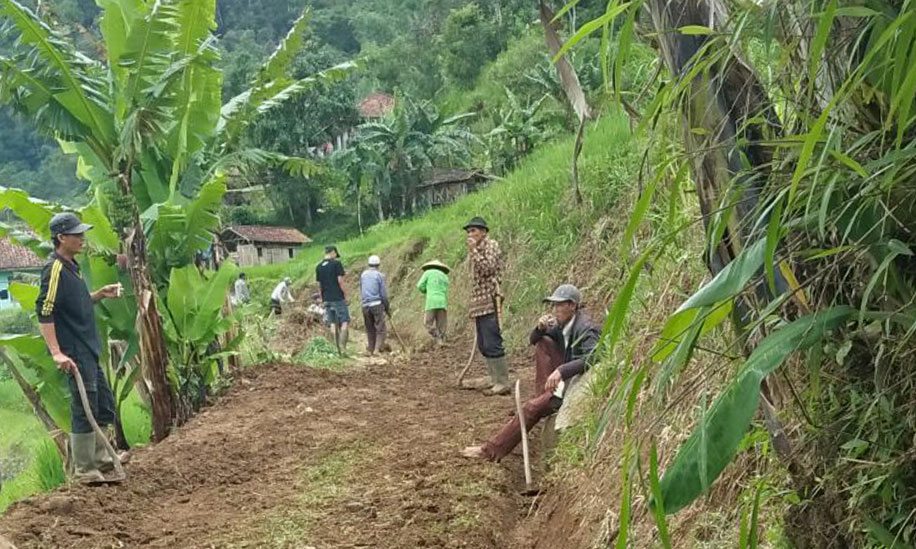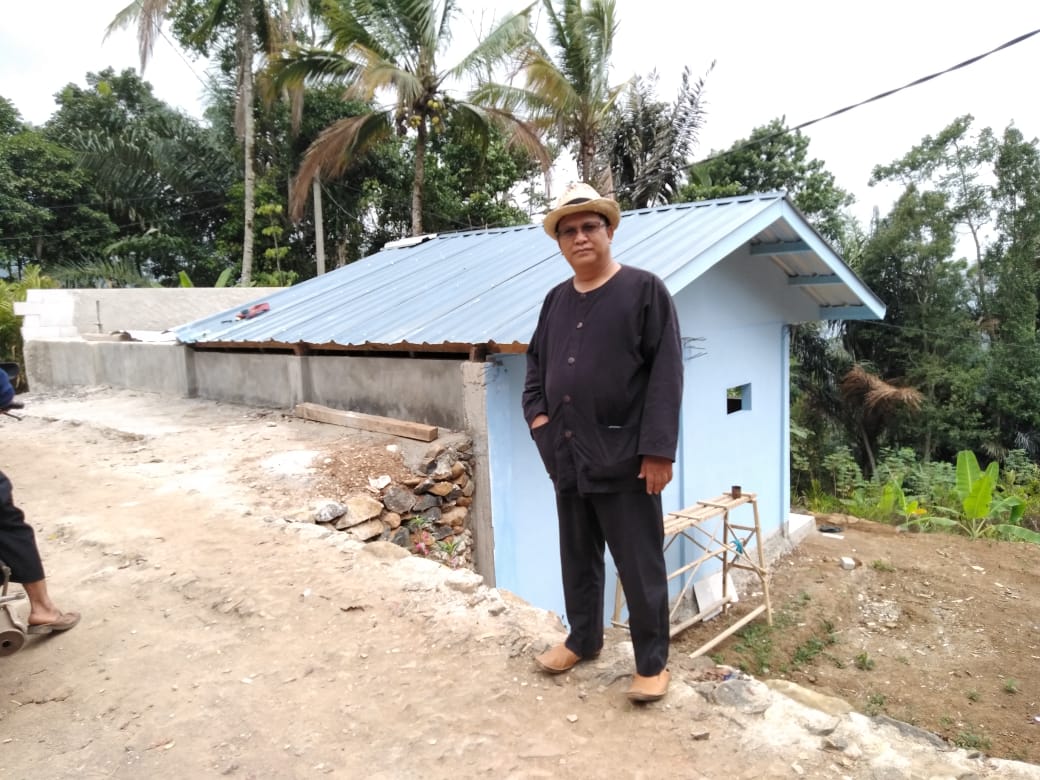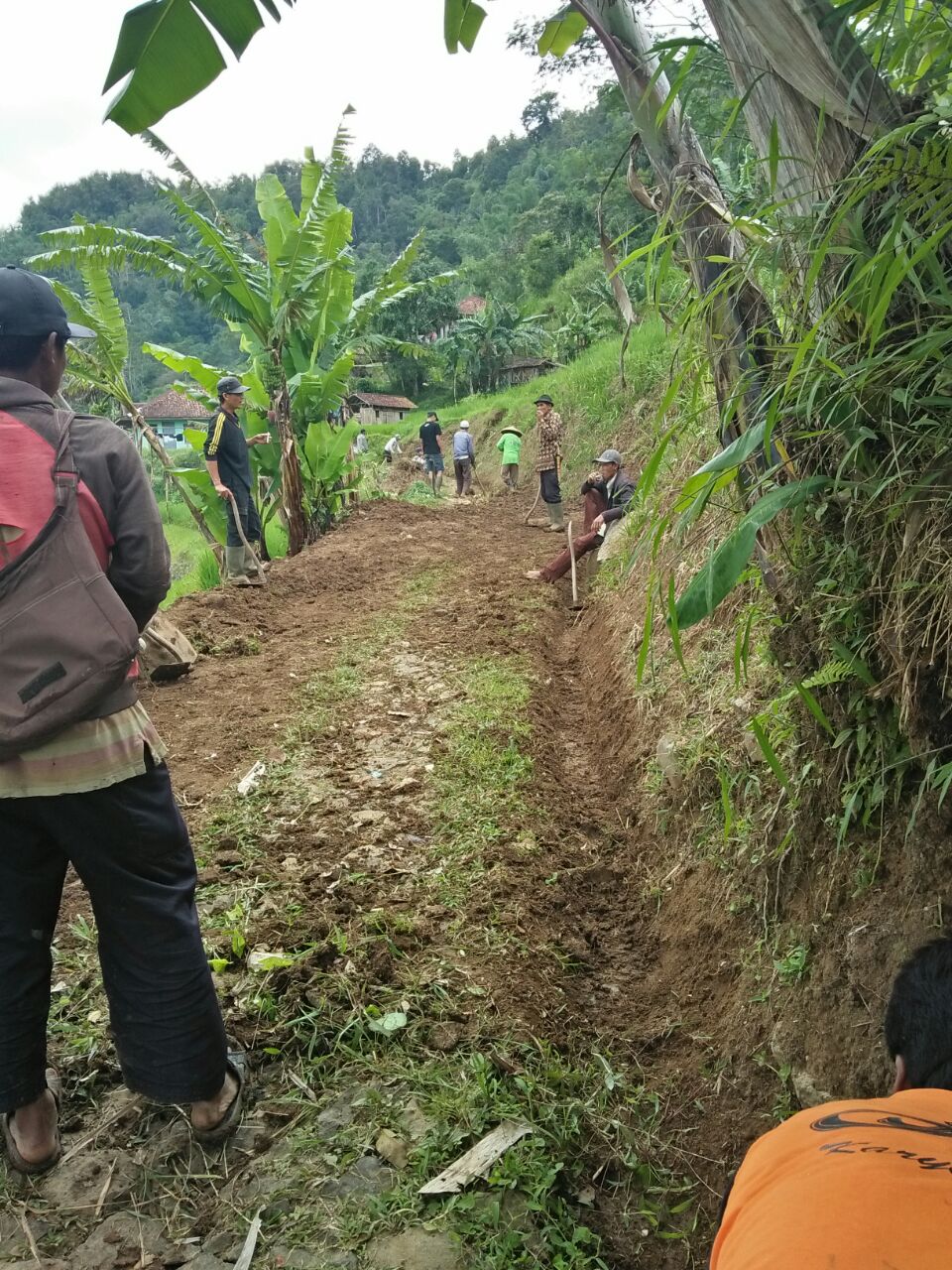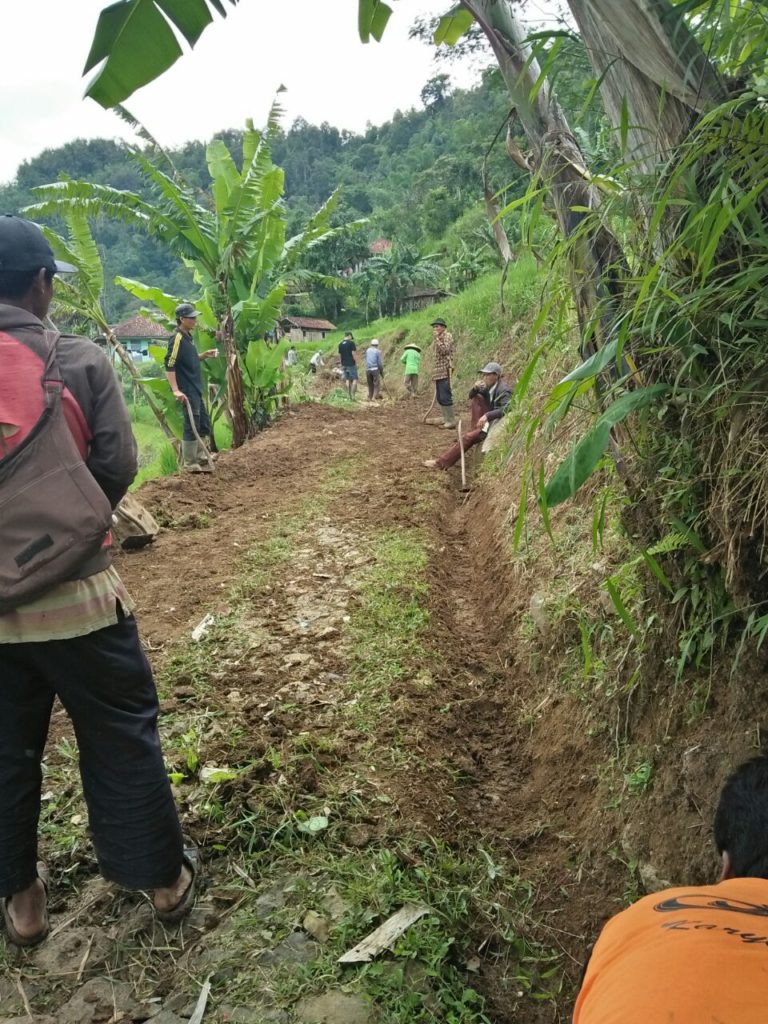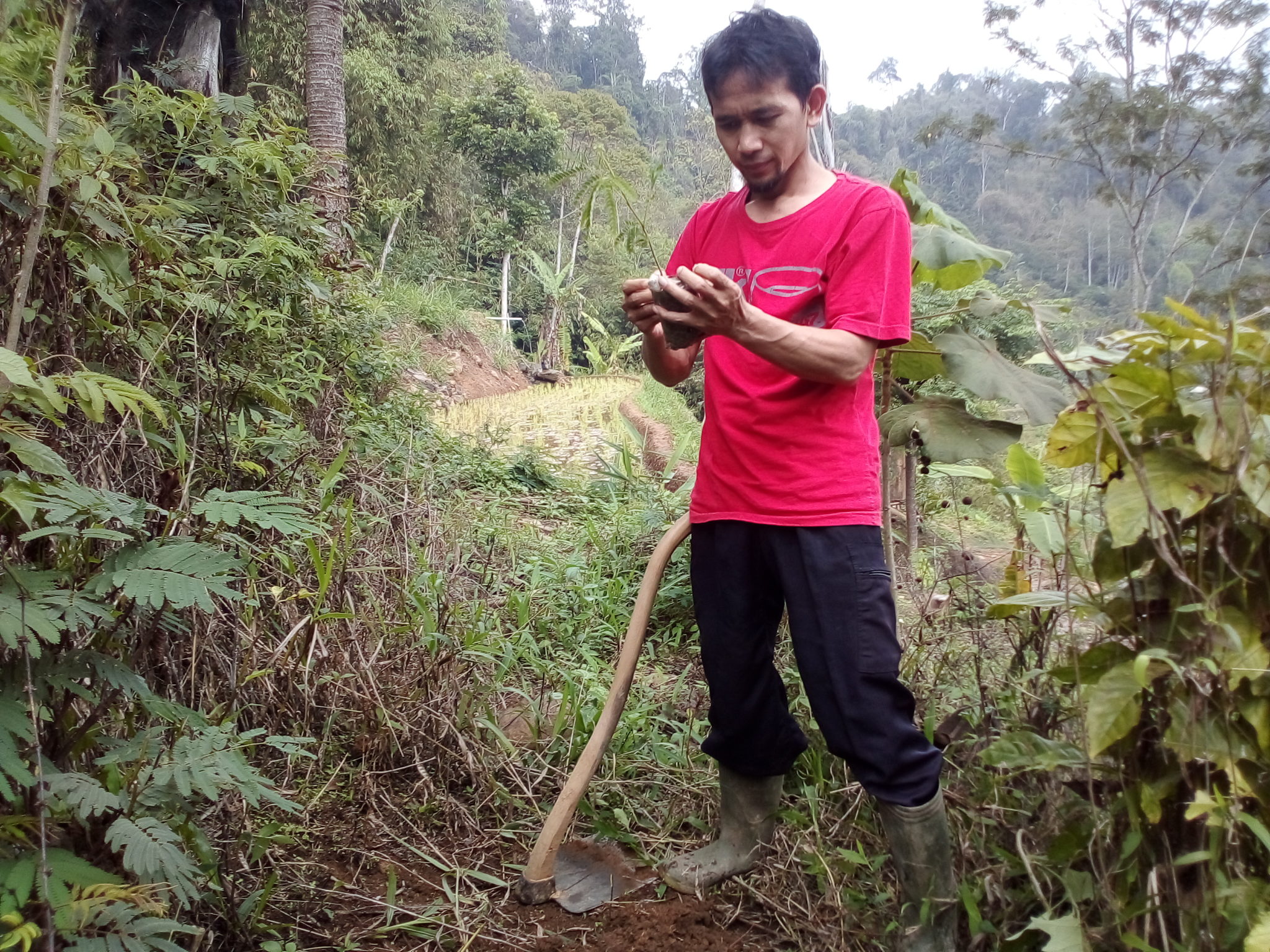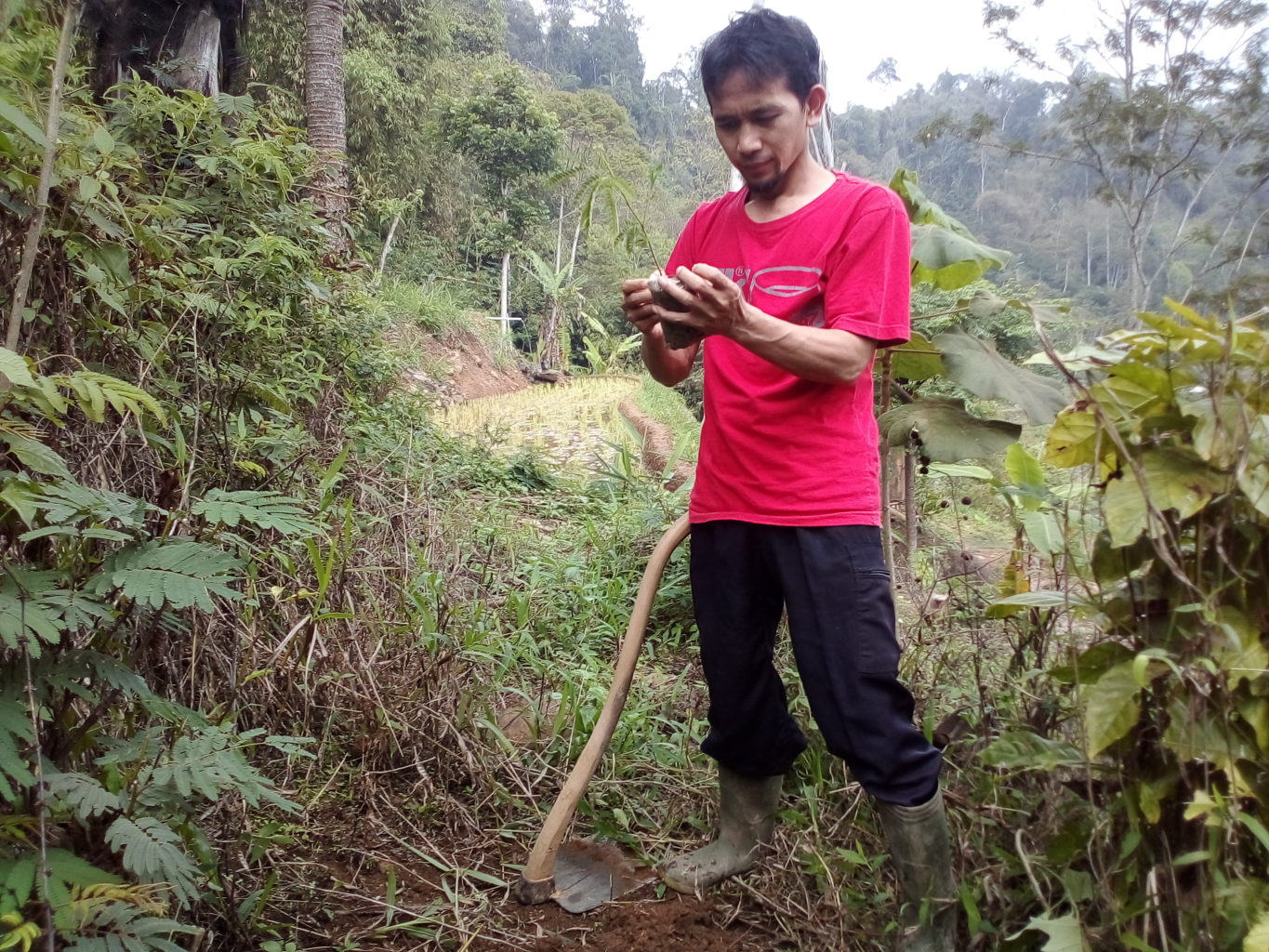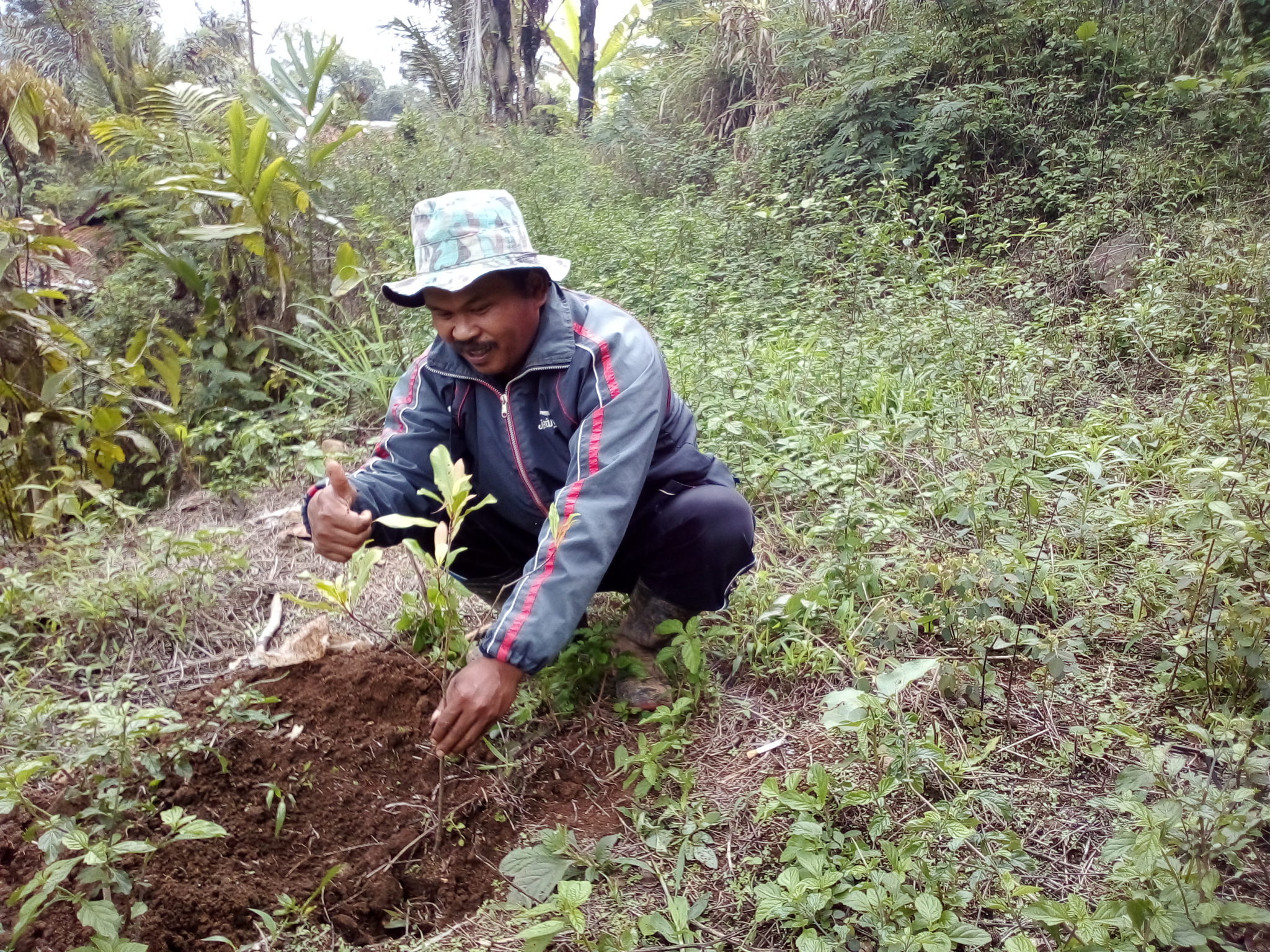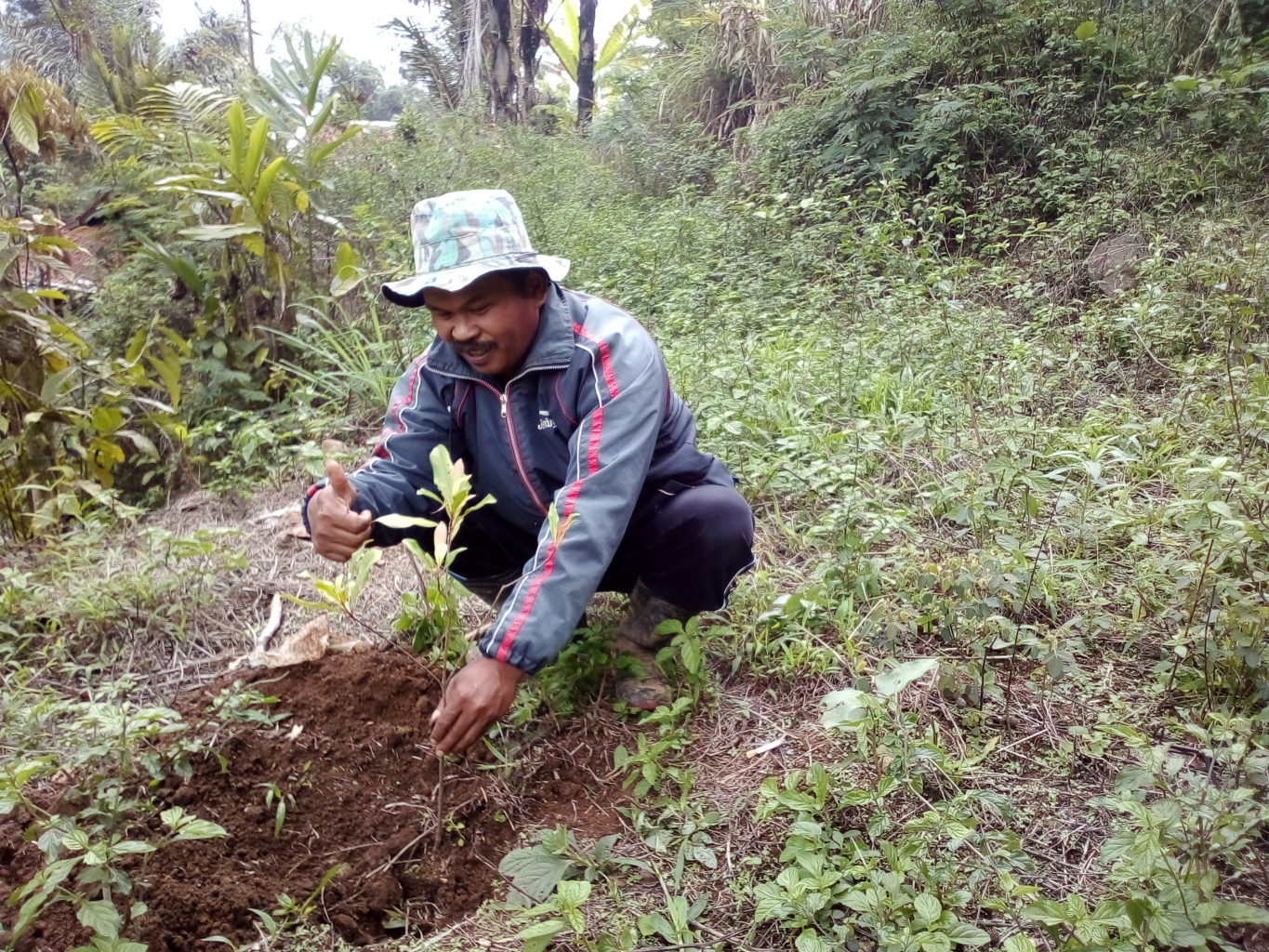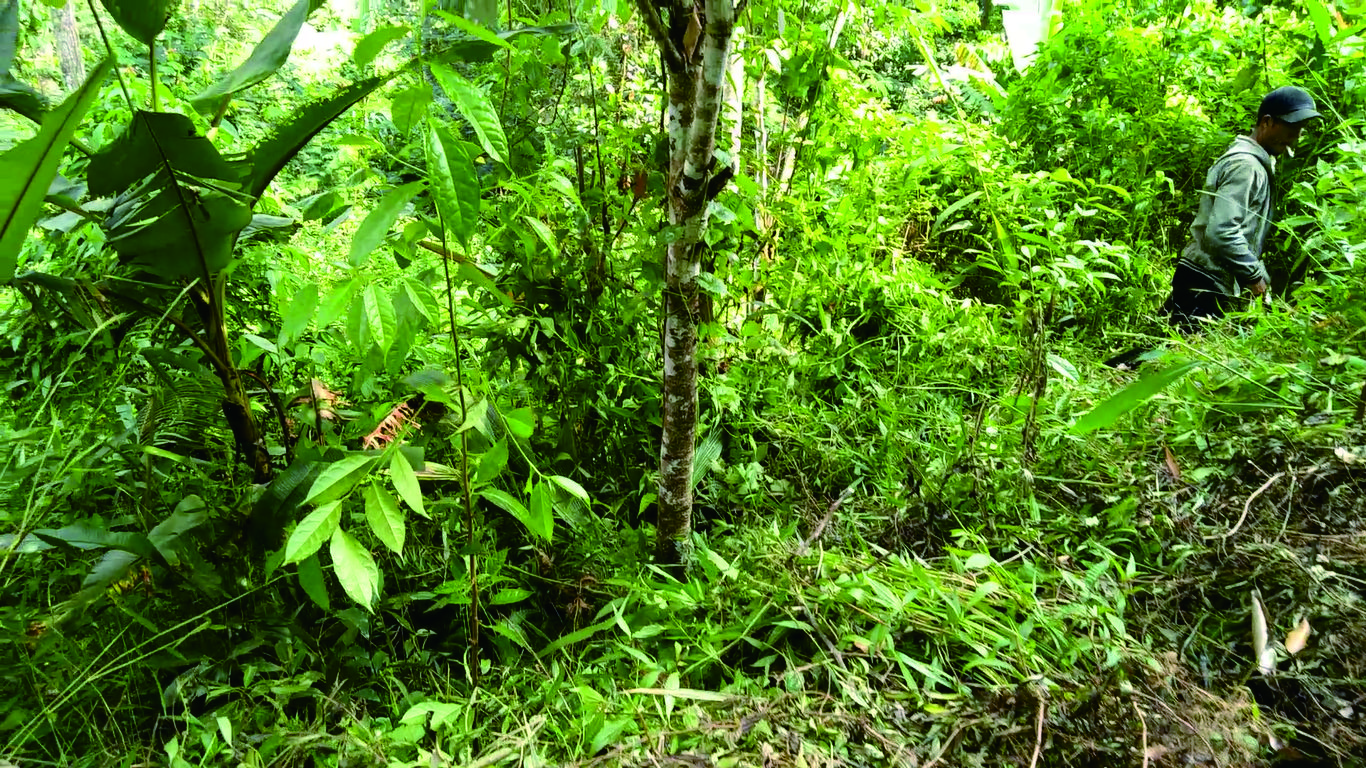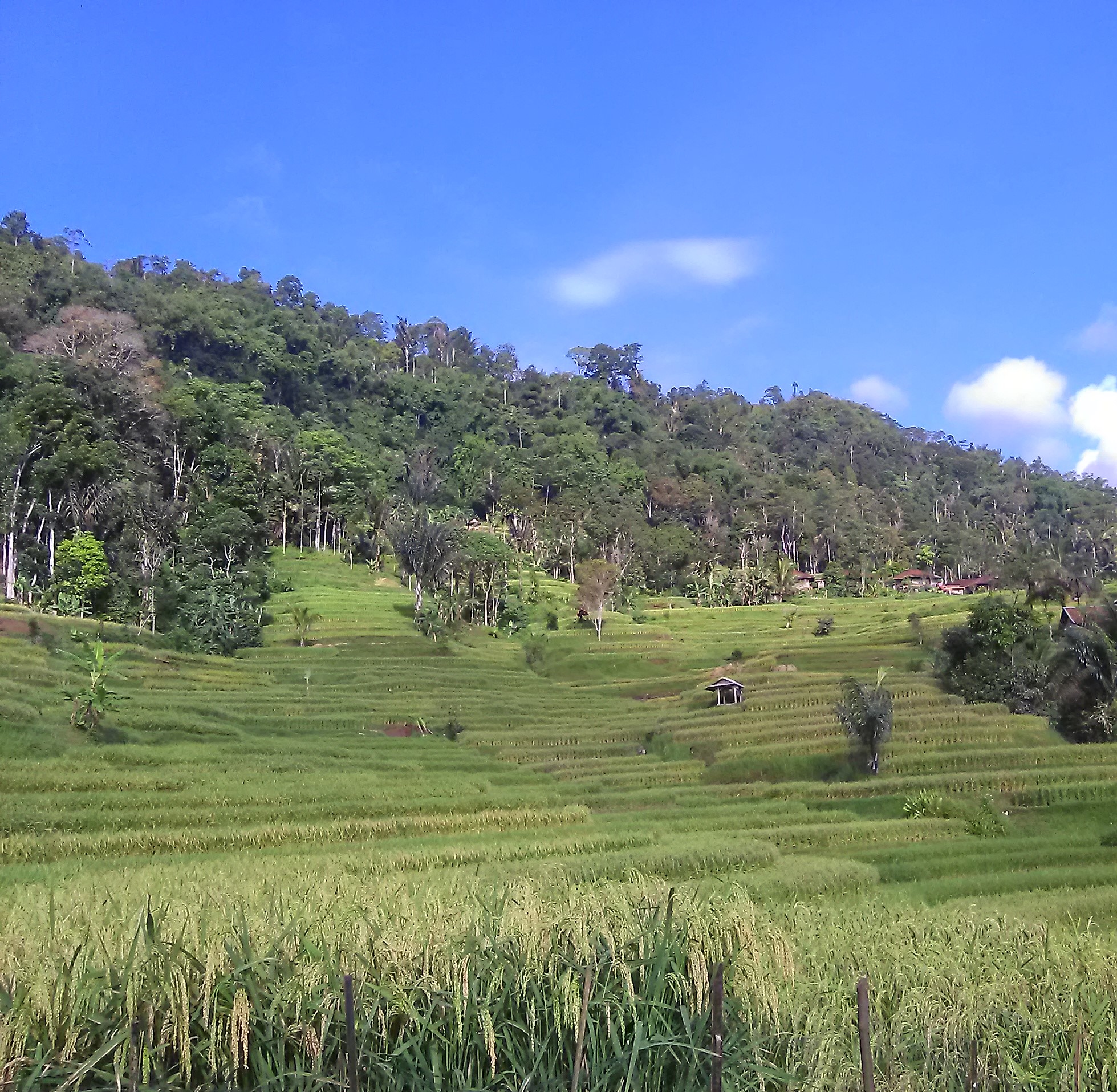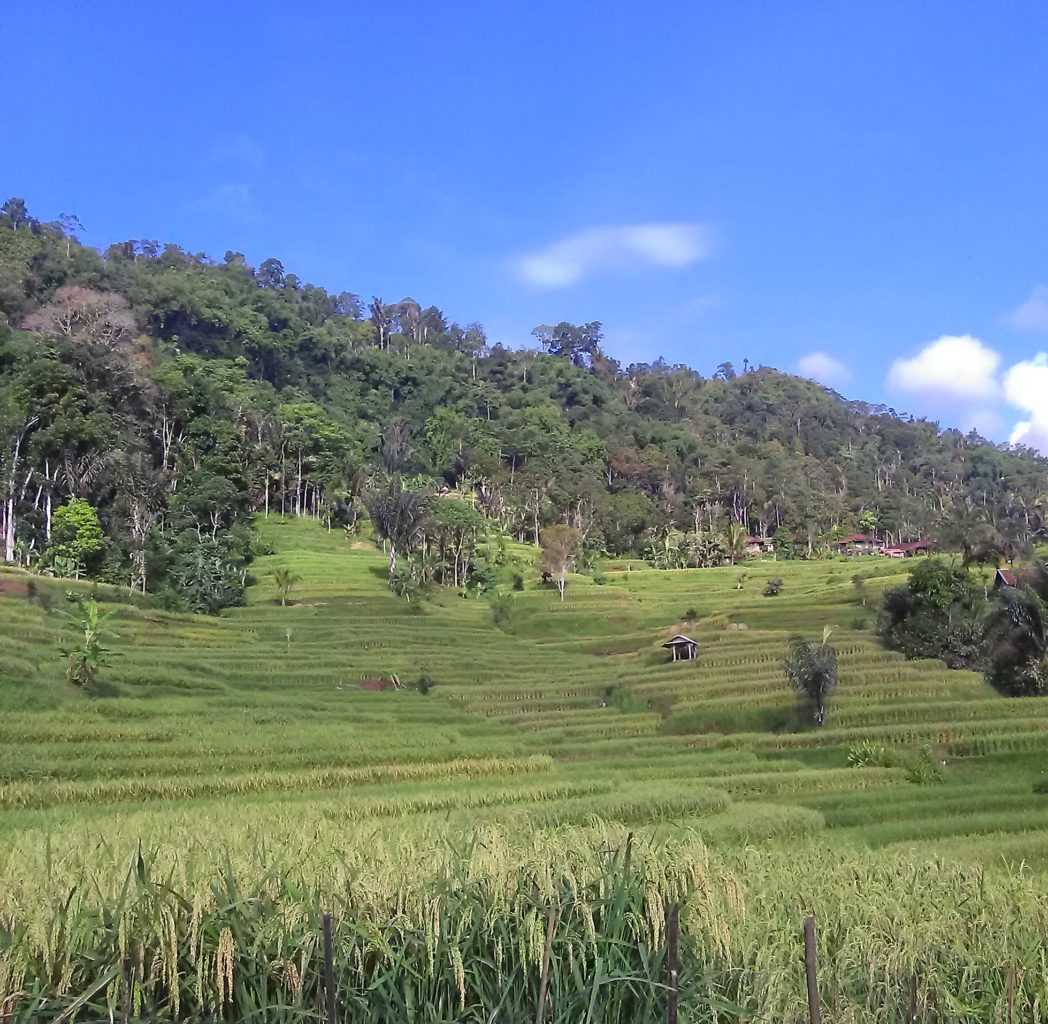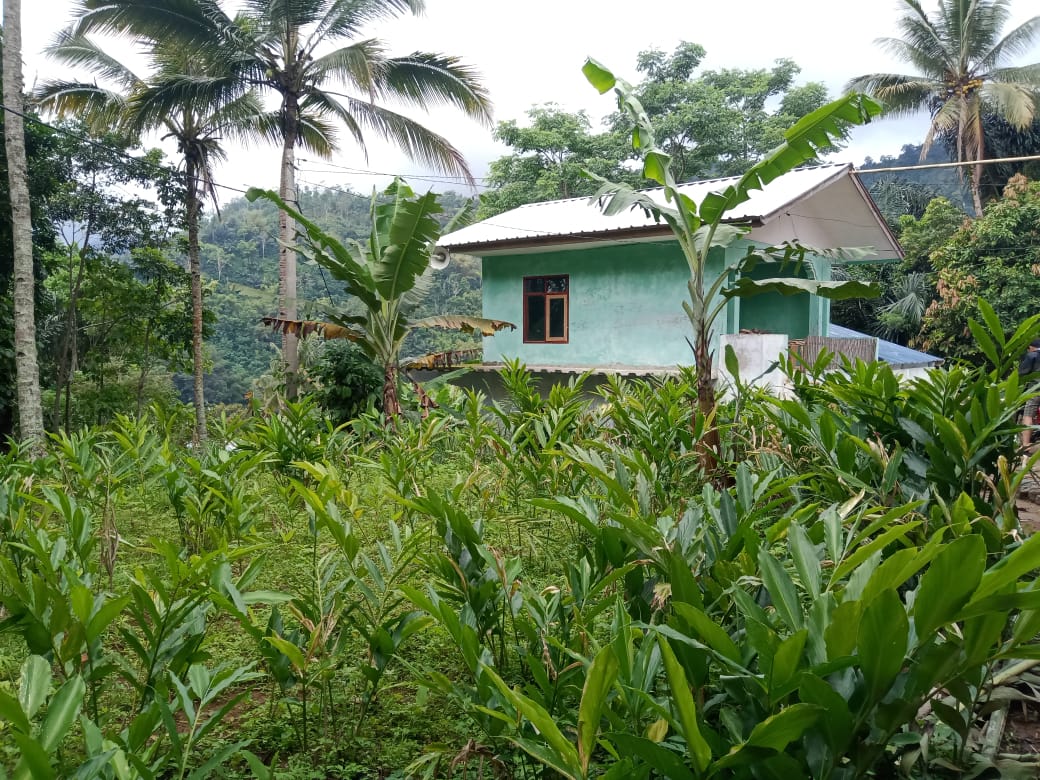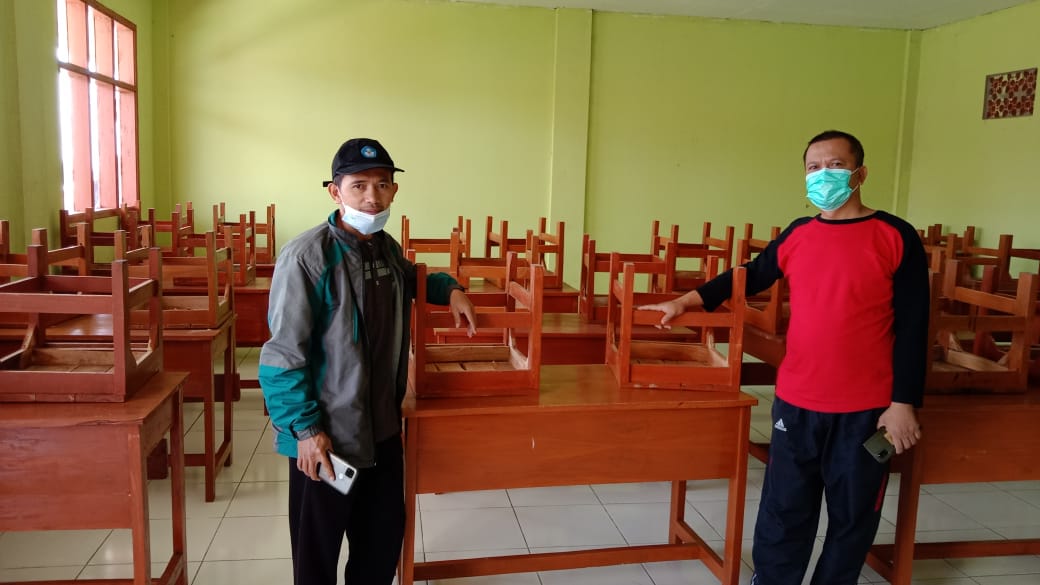West Java’s beautiful rainforests support many endemic species. Some of them, including the Javan gibbon, Javan surili, Javan hawk-eagle, Javan leopard, and others, are endangered or critically endangered. Much of their forest habitat has been destroyed on this densely populated island.
But for the people of Mekarjaya Village, almost 5,000 feet up in the mountains, the forest is “the heart of life.” Dense rainforests stabilize the soil on the slopes above the community and serve as a crucial watershed. More than 90% of the households engage in small-scale rice farming. They know that a healthy rainforest is critical to their way of life and are committed to protecting it.
Mekarjaya borders the village of Puncak Baru, which is already protecting more than 2,000 acres of spectacular tropical forest as part of an agreement with Seacology. Mekarjaya will conserve 4,638 acres (1,877 hectares) of forest for 15 years. The conservation area is part of a national forest, but receives little protection in practice. Community members are well situated to keep an eye on the forest, because their rice fields lie along its lower border.
There are two other conservation aspects of the project as well. First, a community group will plant trees in 326 acres (132 hectares) of the conservation area. Second, they will conduct an environmental education program in local schools, focusing on forest ecology and conservation.
A Seacology grant will help families improve the way they store and process the rice they harvest. On land owned by the village, they will construct a small building to dry and store rice. They will also buy a dehusking machine, which separates the rice grain from the husk. Using the machine will produce unbroken grains of rice that can be sold in city markets. It also reduces the loss of husks, which are fed to livestock. The village’s BUMD (Badan Usaha Milik Desa), or village-owned enterprise, whose purpose is to strengthen the community’s economic foundation, will manage the operation.


